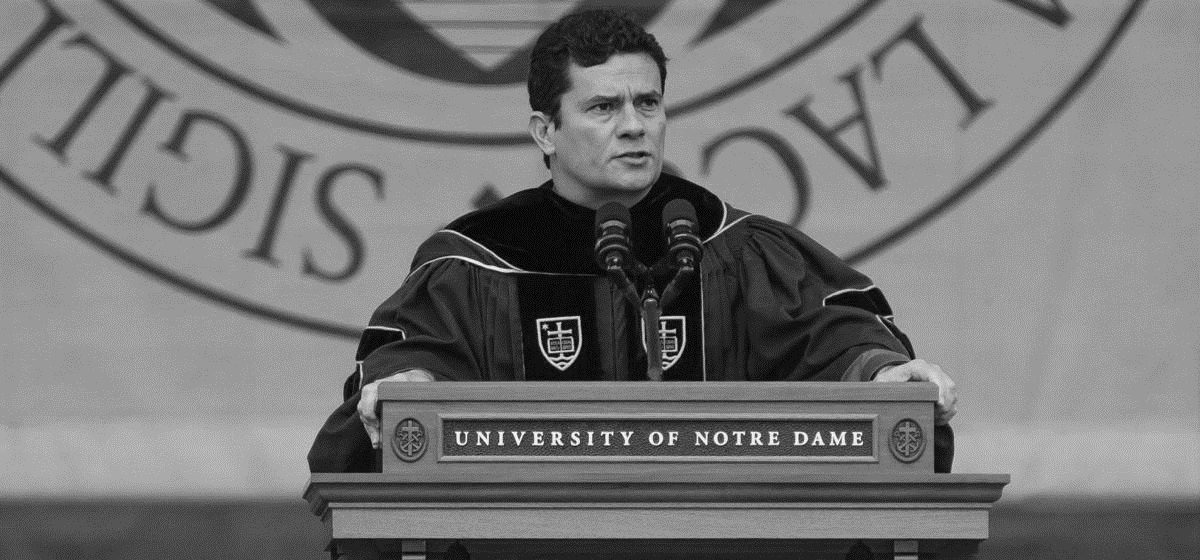Thanks to the Intercept leaks, everyone can see how filthy the entrails of the Lava Jato investigation are, and how it helped destroy Brazil’s democracy and economy. What few people know, however, is how far it strayed from actually fighting corruption.
by Marcelo Zero
The Lava Jato investigation was designed by the US Department of Justice and conducted by Judge Sérgio Moro. Although it played a central role in installing the current government of psychopaths who worship torturers and dictatorships, it has not come anyway near being an effective anti-corruption investigation.
Since the essential purpose of this foreign-led operation was not to combat corruption but to overthrow a regime that was contrary to US interests in South America, as former Ambassador Thomas Shannon explicitly acknowledged, it was limited to selective persecution of the Workers Party (Partido do Trabalhadores/PT) and its leaders.
Beyond that specific objective, there was also a more general objective: to criminalize politics and the system of democratic representation in order to enable the transfer of real power from democratic institutions based on popular sovereignty to “technical” bureaucratic castes of un-elected officials, such as prosecutors, judges and the military, who are unencumbered by the electoral control of citizenship accountability but close to Market interests.
To further this goal, Lava Jato focused on corruption within the political system. Indeed, pressure on contractors and state-owned companies, particularly Petrobras, was only a means to the greater goal of arresting corrupt or, in some cases like Lula’s, clearly innocent politicians.
To do this, they even criminalized legal and registered campaign donations as “bribes” for unspecified acts. The idea was sold that the entire Brazilian political system was corrupt and that political corruption was Brazil’s main problem. Once purged, even at the cost of legal rights, guarantees and due process, everything would be settled.
Today, thanks to the #Vaza Jato scandal, revealed by the Intercept, everyone can see how filthy the entrails of this investigation were, and how it made an invaluable contribution to the destruction of Brazil’s democracy and economy. What few people know, however, is how far Lava Jato has strayed from engaging in a real fight against corruption.
The so-called corruption of the political system, while real and deserving of all the authorities’ commitment to its elimination or alleviation, is far from the main problem related to embezzlement and misappropriation of public funds. International studies show that the primary cause of the misuse of public money lies in the tax evasion mechanisms practiced largely by big business, especially financial capital and multinational corporations. According to World Bank estimates, corruption by public officials, through bribery and other mechanisms, drains between $ 20 billion and $ 40 billion a year from developing countries. It sounds like a lot, but it is only a small fraction of what these countries lose from illicit financial flows and the tax evasion or tax avoidance mechanisms practiced mostly by big corporations.
According to Global Financial Integrity (GFI), a US institute dedicated to studying these illegal financial flows, around $ 1 trillion leaves developing countries every year into tax havens or banks in developed countries, without paying taxes. Corruption by public agents in developing nations, including politicians, only represents about 3% of this flow.
It is noteworthy that such an estimate is conservative and partial, as it does not include the so-called legal tax evasion mechanisms, whereby large capital minimizes the payment of taxes due, based on the loopholes and omissions in national and international tax laws. Studies by economist Gabriel Zucman of the University of California, Berkeley, show that, based on a very conservative estimate, tax havens concentrate about $ 8.7 trillion, or 11.5 percent of the World’s wealth. According to Zucman, US multinationals alone avoided paying about $ 130 billion in taxes in 2016 thanks to “legal” financial transactions involving tax havens and offshore banks.
Significantly, Lava Jato has completely ignored the actions of multinational corporations in Brazil – even those that had contracts with Petrobras – and their movements in the national and international financial system.
But this massive corruption, totally ignored by Lava Jato, is not even the biggest problem when it comes to measuring the damage done to developing countries and their populations.
According to a study by the economist Robert Pollin, quoted by Jason Hickel of the London School of Economics in his recent article, Flipping the Corruption Myth, developing countries lost an average of $ 480 billion a year in potential GDP when they adopted the orthodox economic policies recommended by “technical” bodies such as the IMF and the World Bank during the 1990s.
Therefore the real “corruption”, which really produces poverty, inequality and suffering, is precisely that caused by the substitution of popular sovereignty by “technical consensus”, to justify the adoption of supposedly neutral and rational economic policies that are invariably friendly to the interests of Capital to the detriment of the interests of the people.
That was the great result of the Lava Jato investigation. A progressive regime and popular sovereignty were destroyed and the country surrendered to the “technical” interests of international Capital.
In this manner, Lava Jato not only sidestepped the great corruption of the financial system and large multinational corporations, focusing on the 3% of illicit fees charged by public servants, it propelled Brazil to surrender to orthodox economic policies that actually cause poverty and inequality. This has led to policies that are promoting big legal and illegal negotiations that are eroding our sovereignty and promoting more unemployment and income concentration.
In the greater scheme of things, the Lava Jato investigation, instead of actually fighting corruption, plunged Brazil into the greatest possible sea of corruption: the substitution of popular sovereignty for “neutral and technical” policies that will destroy the future of the next generation of Brazilians.
[qpp]

